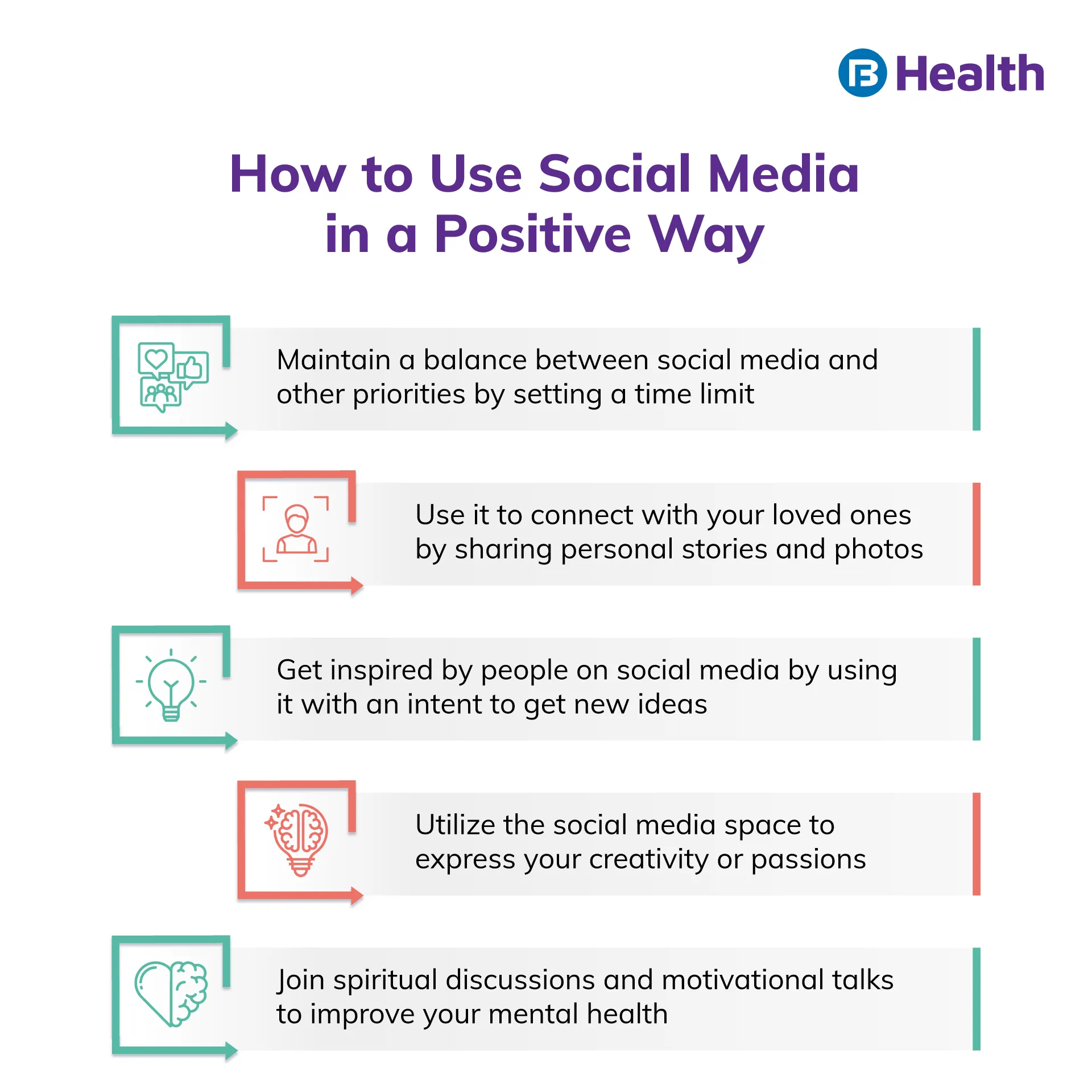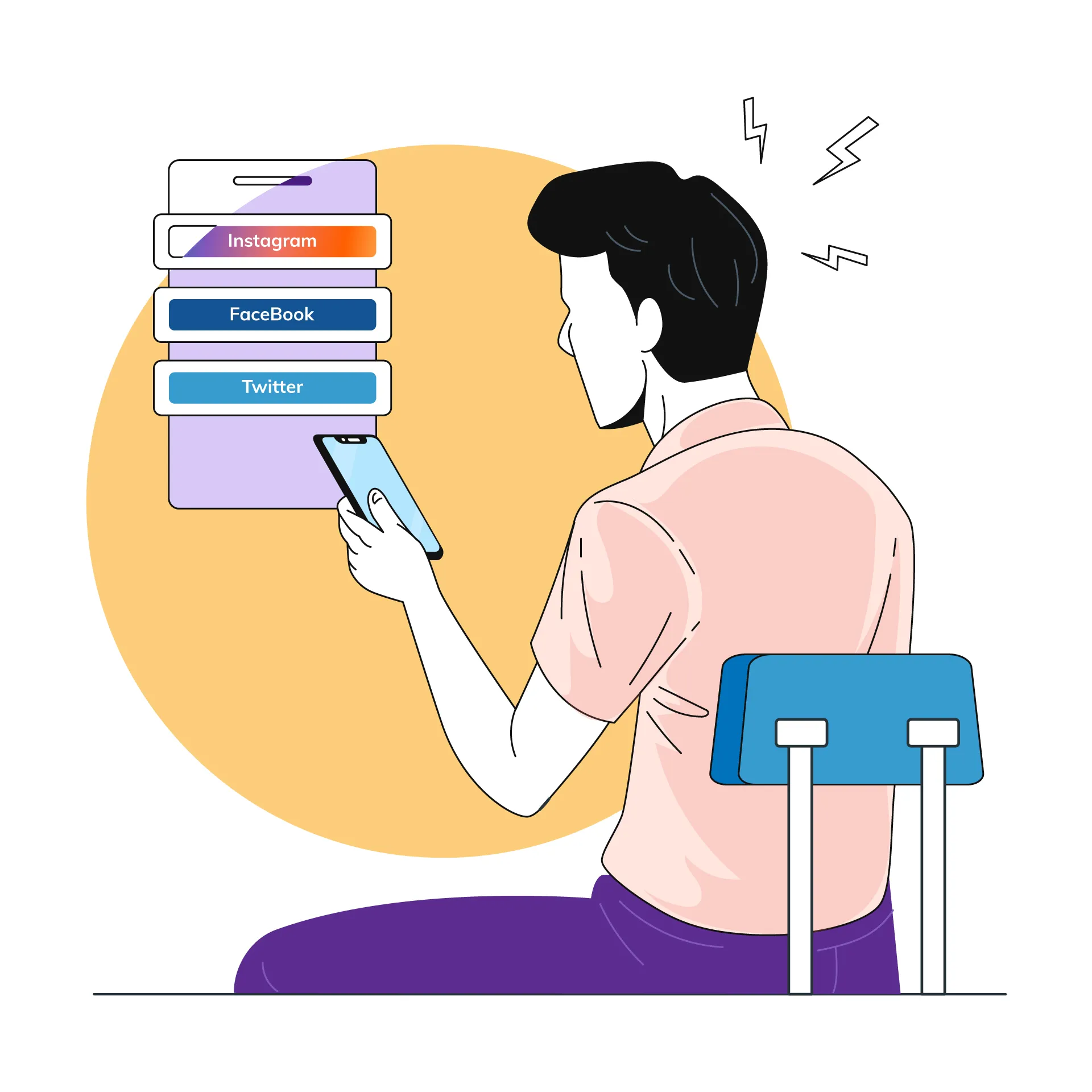Psychiatrist | 4 min read
Addiction of Social Media and Mental Health Disorders
Medically reviewed by
Table of Content
Key Takeaways
- Excessive and uncontrolled usage of social media causes depression
- Too much spent on social media can cause relapse of mental illness
- Practice mindfulness techniques to reduce social media addiction
Scrolling, tapping, posting, liking and swiping - does that describe your normal day on your phone? People around the world are now increasingly dependent on social media. While it helps you stay connected with friends and family spread all over, that’s not all you use it for, is it? It may be impossible to stay away from, but little do we think of its harmful effects. In a situation where more than 14% of the Indian population suffer from mental health disorders [1], too much dependency on social media can pose a serious threat to your mental well-being. According to a report, use of social media has increased anxiety and depression among millennials [2].
There is no denying that social media and mental health are connected. Being too engaged on social networking sites can make you feel lonely and isolated. To reduce stress and feel happy and energized, we all need actual human company around us. This is often compromised if you spend more time in virtual and digital world. Read on to know more about the impact of social media on mental health.

How social media and mental health are connected?
Social media and anxiety
Increasing usage of social media and mental health can trigger anxiety and stress. You tend to stay in a cocoon and are unable to differentiate between the real and the virtual world. When you use networking sites, you assume that people out there are more happy and leading better lives than you. You may also experience FOMO or the fear of missing out. This can compel you to check your phone every few seconds or minutes so that you are always updated. It not only makes you anxious but also affects your self-esteem. Another disadvantage is that you start prioritizing social media over real-world relationships. The constant act of picking up the phone and reacting to posts can even put your life in danger especially when you are walking or driving!
Additional Read: Nature to Reduce Stress and AnxietyHow to use social media in a positive way
Social media and depression
For staying mentally healthy, you need real human connections and face-to-face interactions. However, you cannot feel the same during social media interactions as there are many boundaries between you and other users. When you do not get expected response from the other side, you may feel down. That’s how social media and mental health causes depression. It all depends on how effectively and positively you use it without letting it hamper your mental health.
Additional Read: Beat Depression Naturally Without MedicationSocial media and addiction
Addiction to social media can be destructive as it can make you neglect your priorities like work, studies and relationships. In fact, it may affect your professional career if you do not handle it wisely. If you are mentally preoccupied, you may find it challenging to manage without your phone even for a second. The addiction can drive you crazy as you may want to check every notification and respond immediately.
Social media and relapse of mental illness
Use of social media can affect you physically and psychologically. When you use social networking sites, you are activating specific areas of your brain, especially dopamine-producing areas. As dopamine levels increase with positive feedbacks to your write-ups, photos or videos, you start feeling happy. However, you may find it difficult to accept criticism.
In case you have been through mental illness, there is a high chance for it to reoccur if you don’t balance or limit your social media usage. You may feel good about interacting on social networking sites but rapid mood swings and relationship issues can affect your mental health again.
Social media usage has its pros and cons, so be wise while using it yourself and tell your loved ones about this too. Restrict your reliance on it and see how energized and positive you feel. Taking a break from social media also helps in boosting your psychological well-being. Practicing mindfulness techniques can also reduce stress and improve your mental health. To address this more deeply, you can reach out to reputed therapists on Bajaj Finserv Health. Book an in-person or doctor consultation now and prioritize your psychological well-being.
References
- https://www.statista.com/topics/6944/mental-health-in-india/#dossierKeyfigures
- https://www.ncbi.nlm.nih.gov/pmc/articles/PMC6201656/
Disclaimer
Please note that this article is solely meant for informational purposes and Bajaj Finserv Health Limited (“BFHL”) does not shoulder any responsibility of the views/advice/information expressed/given by the writer/reviewer/originator. This article should not be considered as a substitute for any medical advice, diagnosis or treatment. Always consult with your trusted physician/qualified healthcare professional to evaluate your medical condition. The above article has been reviewed by a qualified doctor and BFHL is not responsible for any damages for any information or services provided by any third party.






